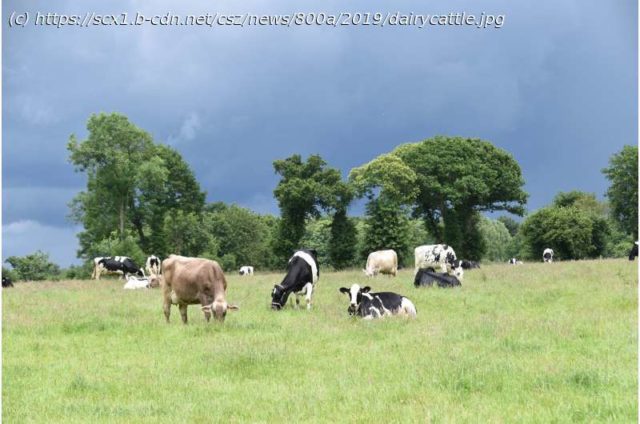A study published in Genome Biology opens new possibilities to improve production efficiency in the cattle industry and potentially animal agriculture more broadly. A team of researchers at Baylor College of Medicine, Cornell University and the USDA discovered that, like humans, cattle have CoRSIVs.
A study published in Genome Biology opens new possibilities to improve production efficiency in the cattle industry and potentially animal agriculture more broadly. A team of researchers at Baylor College of Medicine, Cornell University and the USDA discovered that, like humans, cattle have CoRSIVs.
CoRSIVs are regions of the genome carrying chemical markers on the DNA that provide information that may allow farmers to predict and select desirable cattle characteristics, such as milk production, female fertility and resistance to disease.
„Most people know that each person has a unique set of genes or genome, but less known is that the expression of those genes is regulated by a system of molecular markings on the DNA—epigenetics—that tells different cells in the body which genes to turn on or off“, said co-corresponding author Dr. Robert A. Waterland, professor of pediatrics—nutrition at Baylor’s USDA/ARS Children’s Nutrition Research Center.
„We focus on DNA methylation—the addition of methyl groups, the most stable epigenetic mark. DNA methylation differences between people can affect their risk of disease.“
In 2019, Waterland and his colleagues discovered that the human genome contains special regions called CoRSIVs—correlated regions of systemic inter-individual variation.
Start
United States
USA — IT Big boost for new epigenetics paradigm: CoRSIVs, first discovered in humans, now...






